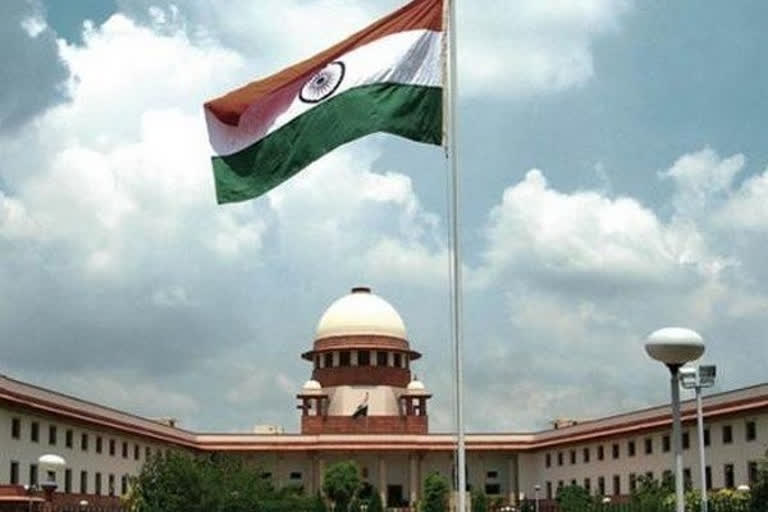New Delhi: The Supreme Court on Thursday said that for speedy justice in child rape cases, directions can be passed without waiting for additional data on cases registered under the Protection of Children from Sexual Offences (POCSO) Act.
"Instead of adjourning the case for receipt of further/additional data, we are inclined to proceed to issue certain directions," said a bench comprising Chief Justice Ranjan Gogoi and Justices Deepak Gupta and Aniruddha Bose. The court was hearing a matter it had taken up on its own on the "alarming rise" in the number of rape incidents against children.
S S Rathi, Registrar of the apex court who was asked to compile data of total pending cases under the POCSO Act across the country, sought some more time but the bench said that the exercise can continue without coming in its way to pass directions.
"Why we need more data. We will pass directions," the bench said.
The apex court is also getting the assistance of senior advocate V Giri, who is assisting it as an amicus curiae in the matter, and Solicitor General Tushar Mehta. The bench told Solicitor General, who was not initially present during the hearing, that "this is a matter which should be the top priority" for him.
The bench was not in agreement with Mehta's suggestion that a High Court judge be entrusted with task of supervising the setting up of centrally funded designated court in each districts to deal exclusively with POCSO cases.
"It is a very attractive and tempting suggestion but we are saying no to. In most High Courts, a judge has causelist of 400 cases which is frightening for a HC judge. In the Supreme Court we have 50-60 cases on Monday and Friday," the bench said.
During the hearing, Rathi said: "He consulted the National Commission for Protection of Child Rights (NCPCR) for data but it is unfortunate that the commission is not collecting it and he had to collect information from six other sources, including National Crime Records Bureau (NCRB), National Legal Services Authority (NALSA) and amicus curiae."
His submission drew sharp reaction from the bench, which said "what they are doing for all these years." The Registrar said that he has found the most authentic data from the Parliament website which were based on the questions raised in the House and also from the juvenile justice boards (JJBs).
"However, there is no unison in maintenance of data," he said. "While some data sources peg the number of pending POCSO cases across the country at 1.5 lakh, some others put it at 1.6 lakh," he added.
He went on to say that, "Uttar Pradesh has the largest number of POCSO cases at 44,376, followed by Maharashtra (over 19,000) and Madhya Pradesh (over 9,000). Also, the registration of FIR under the POCSO Act has come down from 2014 to 2017."
The nationwide disposal rate of POCSO cases from 2013-2017 is 24 per cent, with Mizoram being the best at 56 per cent, followed by Sikkim at 39 per cent, Madhya Pradesh at 36 per cent and Goa and Assam at 30 per cent. Odisha at 12 per cent and Maharashtra at 14 per cent are among the lowest average of disposal of POCSO cases, while Delhi has 15 per cent disposal rate only. The disposal rate in Delhi last year was only seven per cent.
Rathi added that the national average of judge-case ratio is 1:224, with Kerala being the worst, having three courts and over 2,000 cases each.
"We need to increase the number of judges by 300 per cent," he said.
He said that child victims were not getting compensation and in 2015, 2016 and 2017, only three, four and five per cent such victims were given compensation. "Courts are over burdened," he said, adding that there was no central data on forensic science laboratory reports.
Also read: Parliament session likely to be extended till August 7




